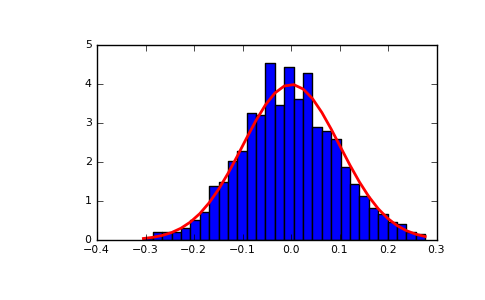

Efficient Array Operations: NumPy provides an array object, which is a multi-dimensional array that allows you to perform vectorized operations on arrays.Here are some ways in which the NumPy library is useful: NumPy is widely used in various fields such as data analysis, machine learning, scientific research, and more.

It provides support for arrays, matrices, and a wide range of mathematical functions to work with these arrays efficiently. Upgrading PCG64 with PCG64DXSM.The NumPy library (short for Numerical Python) is a fundamental package for scientific computing in Python.

Users with a very large amount of parallelism will want to consult The included generators can be used in parallel, distributed applications in
NUMPY RANDOM ARRAY GENERATOR
See What’s New or Different forĪ detailed comparison between Generator and RandomState. Legacy Random Generation for the complete details. The convenience Functions in numpy.randomĪre still aliases to the methods on a single global RandomState instance. It continues to use the MT19937 algorithm by default, and old seeds continue This is a useful primitive for constructingĪ flexible pattern for parallel RNG streams.įor backward compatibility, we still maintain the legacy RandomState class. Importantly, it lets you useĪrbitrary-sized integers and arbitrary sequences of such integers to mix Require different amounts of bits for its state. Implementation details of each BitGenerator algorithm, each of which can SeedSequence implements a sophisticatedĪlgorithm that intermediates between the user’s input and the internal Seeīit Generators for more details on the supported BitGenerators.ĭefault_rng and BitGenerators delegate the conversion of seeds into RNG

Than the MT19937 algorithm used in the legacy RandomState. It has better statistical properties and performance default_rng currently uses PCG64 as theĭefault BitGenerator. NumPy implements several different BitGenerator classes implementingĭifferent RNG algorithms.
NUMPY RANDOM ARRAY CODE
Structure allows alternative bit generators to be used with little code Into more useful distributions, e.g., simulated normal random values. The Generator takes the bit generator-provided stream and transforms them Provides functions to produce random doubles and random unsigned 32- and 64-bit TheīitGenerator has a limited set of responsibilities. Owns a BitGenerator instance that implements the core RNG algorithm. Users primarily interact with Generator instances. What’s New or Different for information on transitioning, and NEP 19 for some of the reasoning for the transition. See Legacy Random Generation for information on the legacy infrastructure, The algorithmsĪre faster, more flexible, and will receive more improvements in the future.įor the most part, Generator can be used as a replacement for RandomState. Time, we do recommend transitioning to Generator as you can. While there are no plans to remove them at this There is still a lot of code that uses the older RandomState and theįunctions in numpy.random. Generator and its associated infrastructure was introduced in NumPy versionġ.17.0. Options for controlling the seed in specialized scenarios. See the documentation on default_rng and SeedSequence for more advanced > import secrets > import numpy as np > secrets. Pseudo-randomness was good for in the first place. Independent for all practical purposes, at least those purposes for which our Seed the RNG from nondeterministic data from the operating system and therefore By default, with no seed provided, default_rng will create Our RNGs are deterministic sequences and can be reproduced by specifying a seed integer toĭerive its initial state. default_rng () # Generate one random float uniformly distributed over the range ) # Generate an array of 5 integers uniformly over the range ) # may vary


 0 kommentar(er)
0 kommentar(er)
